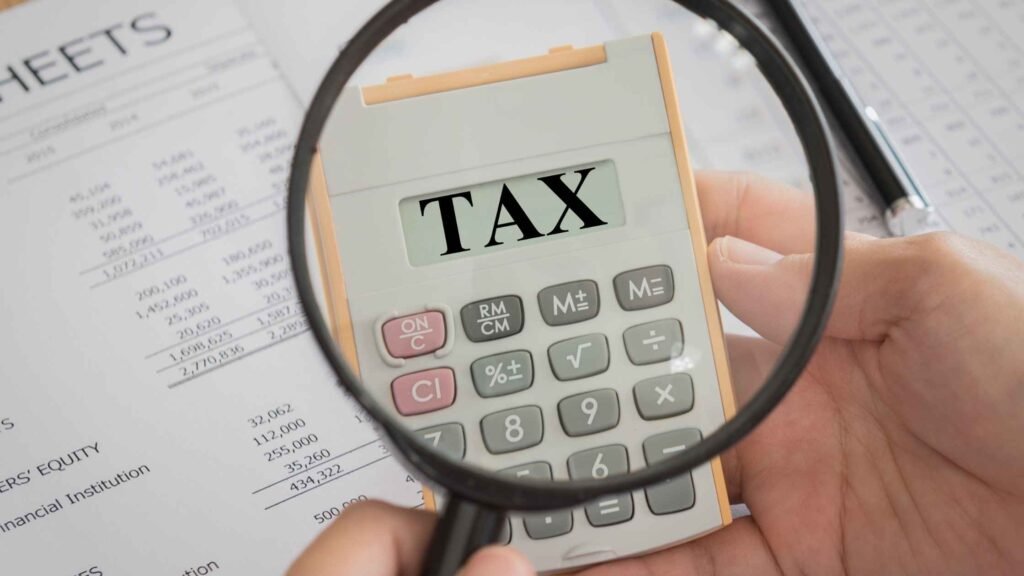Many people suffer stress during tax season. As deadlines get near and the amount of documentation increases, mistakes are frequently made while filing taxes.
We have created a list of ten typical errors to steer clear of in order to help you with this year’s tax file. You may submit your taxes worry-free and without costly errors if you are aware of these issues.
10 Common Tax Filing Mistakes to Avoid
1. Filing Taxes Late or Missing the Deadline
Late Filing of taxes is one of the most frequent errors. The IRS has strict due dates; failure to meet them can lead to penalties or interest charges. Even if you do not owe any taxes, late Filing still incurs penalties.
How to Avoid This Mistake:
Mark the tax deadline on your calendar. The solution to submitting late is to request an extension in a timely manner. However, be aware that an application/extension of time to file is not equivalent to an application/extension to pay. Any taxes due must still be assessed and paid.
To avoid fines, submit your request for a return or an extension before the deadline.
2. Incorrectly Reporting Your Income
You may think only your primary occupation is relevant when filing income tax. But other sources of income, such as freelance work, side jobs, or investment earnings, need to be reported as well.
How to Avoid This Mistake:
Make sure to report all your income. This includes your W-2, 1099, and even cash-based income.
Take a close look at each form to ensure the numbers are accurate.
If you earn money not accompanied by a form (e.g., freelance/gig work), report the earnings manually.
Failing to declare income can result in audits or penalties, so it must be thorough.
3. Failing to Claim All Deductions and Credits
There are many tax deductions and credits that may reduce your tax liability. Nevertheless, many individuals fail to take advantage of these opportunities because they are unaware they are eligible or forget to claim them.

How to Avoid This Mistake:
Make use of the standard deduction if you are eligible. However, you may be better off itemizing your deductions if you have many expenses (e.g., mortgage interest, medical costs).
Also, don’t overlook tax credits, such as the Child Tax Credit, the Earned Income Tax Credit (EITC), or education credits (e.g., the American Opportunity Credit).
Double-check eligibility for any deductions or credits that apply to you.
These opportunities can help lower your taxable income and reduce your tax bill.
4. Incorrectly Claiming Dependents
Claiming dependents on your tax return can allow you to deduct a sizable tax. However, things can go wrong, especially if your family situation has changed (e.g., the birth of a new child or the dissolution of a marriage).
How to Avoid This Mistake:
Verify that the individual you claim as a dependent meets the IRS definition. As a rule of thumb, they must live with you for at least six months and depend on you financially.
If there is shared custody of a child, only one parent can claim the child as a dependent. Agree on who will claim them before filing.
5. Choosing the Wrong Filing Status
Are you mindful that your filing status affects your tax rate, provided deductions, and credit eligibility? It’s important to select the appropriate status: single, married, head of household, etc.
How to Avoid This Mistake:
Understand the different filing statuses:
Single: For people who are not officially married or separated.
Married Filing Jointly: For couples who file together. It often offers the best tax benefits.
Married Filing Separately: This may increase taxes and decrease deductions, but can have benefits in certain cases.
Head of Household: If you are unmarried and care for a dependent, this status offers a better tax rate than the single status.
Qualifying Widow(er): Available to someone recently lost a spouse and meets specific criteria.
Review your situation to ensure you select the best status.
Choosing the wrong filing status may lead to paying more taxes, so select the correct one.
6. Not Double-Checking Your Math
Math errors are a common mistake when filing taxes. Whether it’s a miscalculation of deductions, credits, or income, these mistakes can cause delays or force you to file an amended return.
How to Avoid This Mistake:
Use tax software, which can automatically do the math for you.
If you’re filing manually, carefully verify all calculations, especially on forms that require adding or subtracting multiple numbers.
If unsure, consider asking a professional or using online calculators to help.
Simple math mistakes can slow your refund or trigger an audit, so double-check your numbers.
7. Forgetting to Sign and Date Your Tax Return
Many people forget to sign and date their tax return, which is an easy but serious mistake. An unsigned return will not be processed, leading to a delay in your refund or other consequences.
How to Avoid This Mistake:
Before submitting your tax return, check that you’ve signed and dated it.
If you’re filing electronically, use your PIN or e-signature.
8. Misreporting or Missing Information on Tax Forms
Tax documents such as W-2s, 1099s, etc., contain important details that must be reported accurately on your tax return. Missing or inaccurate information (like Social Security numbers or income) can result in a rejection or delay of your return.
How to Avoid This Mistake:
Carefully examine all your tax forms and check that the information matches your tax return.
If discrepancies occur, contact the issuer of the form and request a correction.
Make sure your name, Social Security number, and income figures are entered correctly.
Errors on tax forms can cause delays and penalties, so accurate submission of all data is crucial.
9. Neglecting State and Local Tax Obligations
Most individuals focus on federal taxes and overlook state and local tax obligations. However, you may also need to file state taxes, depending on where you live.
How to Avoid This Mistake:
Be aware of your state’s tax laws and reporting requirements.
If you’ve moved to a new state, report income for your old and new states, if necessary.
Some states do not have income taxes, but others may have other taxes, including property or sales taxes, that must be considered.
Filing your state taxes correctly is as important as filing your federal tax return, so don’t neglect this step.
10. Not Keeping Records for Future Reference
Good record-keeping is essential for tax filing and can save you time and stress in the future. However, if you do not keep the appropriate documentation, you risk missing deductions or credits and getting into trouble if you ever get audited.

How to Avoid This Mistake:
Keep all tax-related documents, such as W-2s, 1099s, receipts for deductible personal expenses, and documentation for charitable donations.
Organize your records securely, whether in a paper folder or an online filing system.
Save documents for at least three years after you file, in case the IRS audits you.
Proper record-keeping makes it easier to file your taxes correctly and ensures you’re prepared for next year’s Filing.
Final Thoughts
Filing taxes can be daunting, but these 10 mistakes to avoid can make the process smoother. Whether it’s meeting the deadline, claiming all possible deductions, or ensuring we have all necessary documentation, every detail counts in compiling a successful and complete tax return. Paying close attention to the details and double-checking our return has always helped us avoid costly errors and made tax season more manageable.
However, if you’re feeling overwhelmed or unsure, I highly recommend letting Fiscal Profits handle your tax filing. With our experienced team, we can guide you through every step, ensuring you don’t miss any deductions and helping you avoid costly mistakes. When we take care of your taxes, you can feel confident knowing everything is in good hands.
